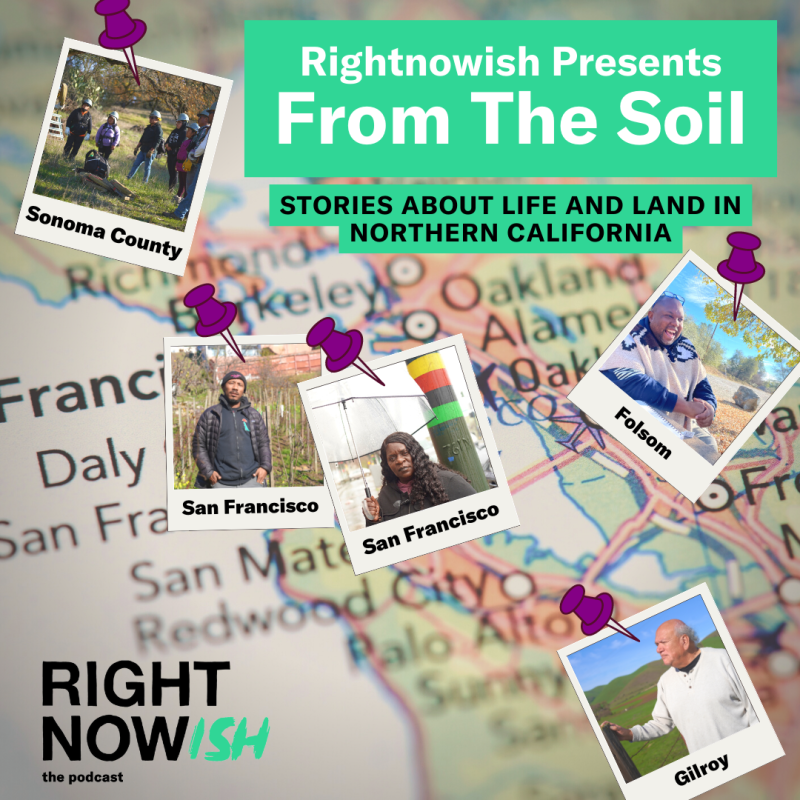In California, land is often the subject of debate. The conversations range from the search for simple recreation to the complexities of land reclamation. This is where multimillion-dollar homes are erected around the corner from shelters occupied by a growing population of people experiencing homelessness. These fertile grounds are where crops are cultivated and redwoods reach skyward, the winds blow sands off of desert dunes, and the great ocean to the west provides a constant breeze. The threat of wildfires and earthquakes are ever present. This land is peaceful, but full of conflict.
Looking for a good story? Look at the ground.
Over the next six weeks the Rightnowish team will explore some of the tales that this soil holds.
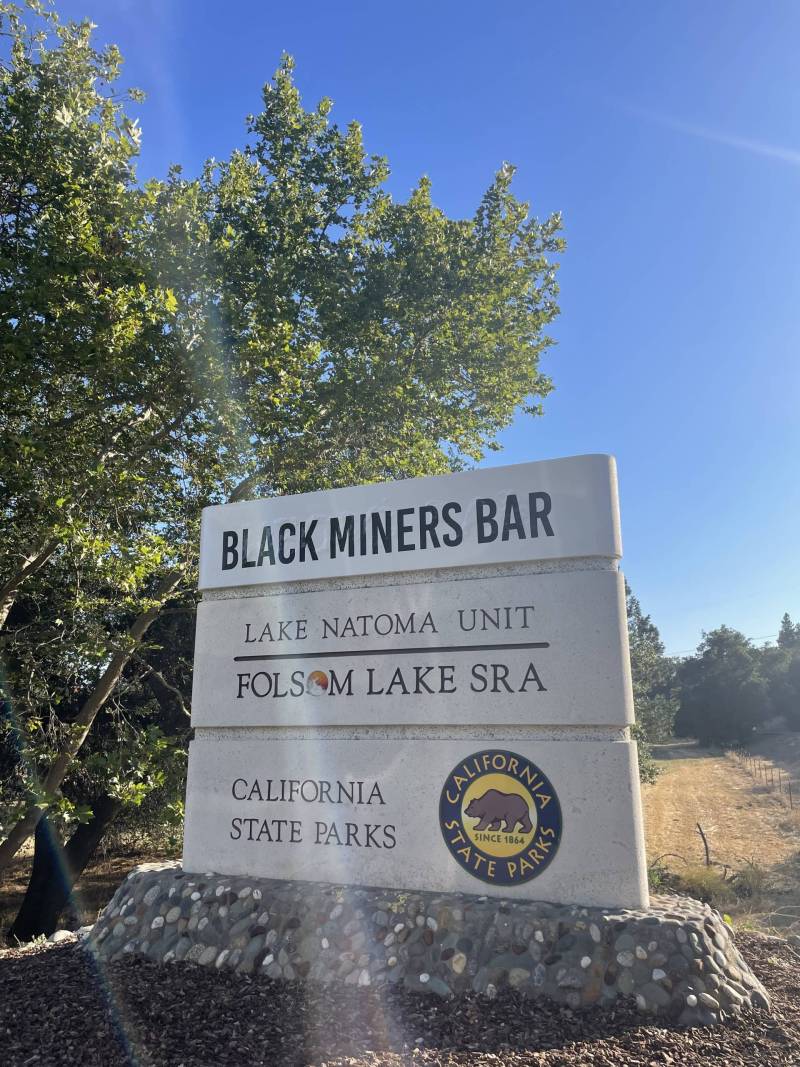
We start just a few miles northeast of the California state capital, in the city of Folsom. That’s where a public recreation area has been recently renamed Black Miners Bar, after years of being called Negro Bar. Historically, the site is known as a place where African American miners were relegated to panning during California’s Gold Rush of the mid-1800s, but it wasn’t just miners who settled there.
There were also people who worked in industries that supported the miners, and those stories are still being explored.
In the summer of 2022, California State Parks unanimously voted to change the name of Negro Bar to Black Miners Bar temporarily, while the department conducts more research into the true history of the area.
For more on what actually transpired on this piece of land we talk to one of the lead researchers on the project, Susan D. Anderson, History Curator and Program Manager at the California African American Museum. We also talk to Michael Harris, a historian and chair of the Friends of Negro Bar community group.
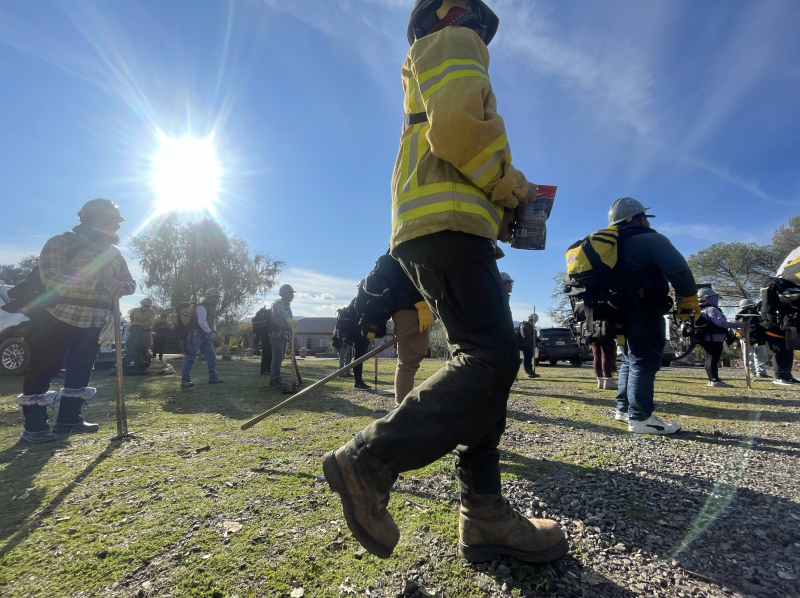
Next we go to the scenic county of Sonoma, where North Bay Jobs with Justice (NBJWJ) and a coalition of organizations are collaborating with immigrant and Indigenous farmworkers, who typically work in the wine fields. As wine harvesting jobs become more precarious in the face of the rampant drought and wildfires, these organizations are providing training to equip workers with climate resilient job skills. Indigenous wisdom isn’t often consulted when addressing our climate crisis, but María Salinas, Crispin López Cruz and Sandra de Leon tell us how they are bringing their ancestral ecological knowledge– such as prescribed burns– to help build a fire resilient landscape in Sonoma.
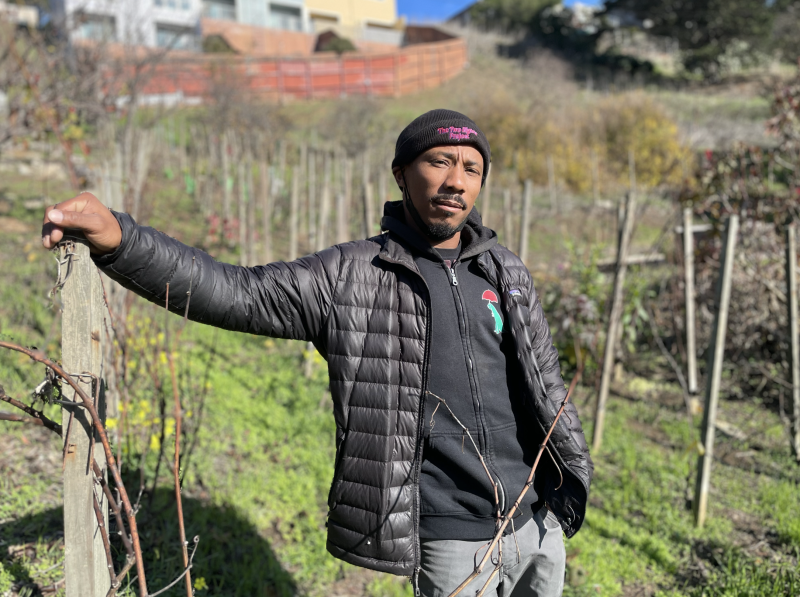
We then go to a hillside in San Francisco’s St. Mary’s Park, where nestled between the Alemany Housing Projects, the 280 Freeway and the Bernal Heights Neighborhood there’s a wine vineyard being used as a teaching tool. A small patch of Alemany Farm is being cultivated by Christopher Renfro and Jannea Tschirch, the co-founders of The 280 Project. Their aim is to use public land to grow crops and introduce people to the world of agriculture, with a specific focus on getting young African-American residents of San Francisco interested in viticulture.
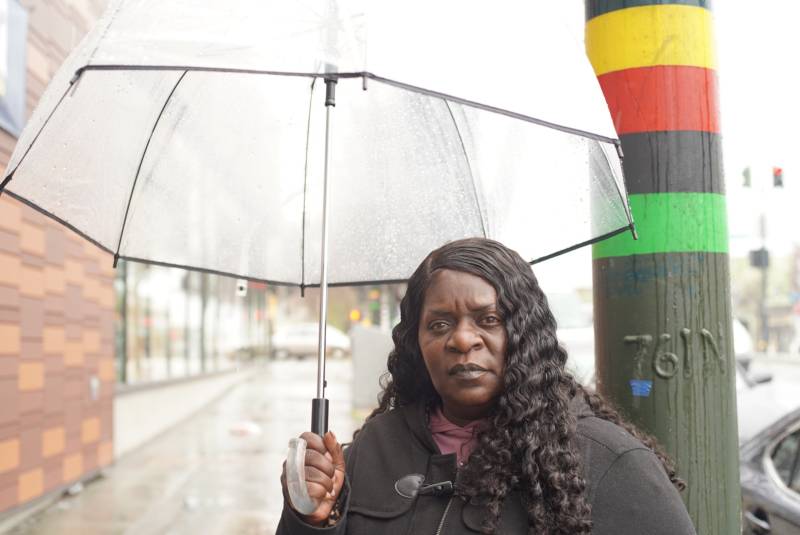
And then we spend some time on Third Street in San Francisco’s Bayview-Hunters Point neighborhood. That’s where Arieann Harrison, CEO of The Marie Harrison Community Foundation, has her organization headquartered. That same community has been home to her family for multiple generations. It’s also where toxins found in the air, water and soil have impacted a number of her neighbors, friends and family members– including her mother, well-known environmental justice advocate Marie Harrison. Arieann shares about her late mother and how she’s continuing her mother’s activist legacy.
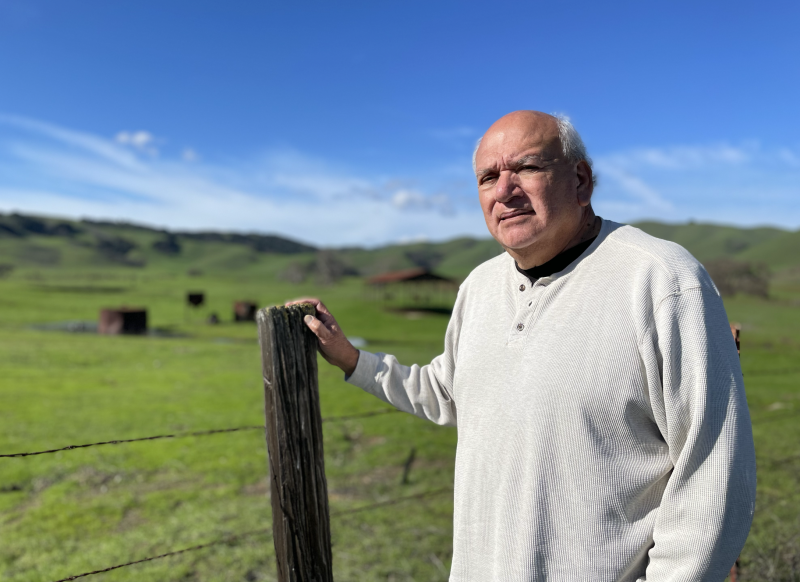
Later we make our way to Santa Clara County to visit the site of a proposed mining project, which is also the historic home of the Amah Mutsun Tribal Band. For over 200 years, the Amah Mutsun have not been able to access one of their most sacred sites that they call Juristac. For the last seven years, the tribal band has organized support from the local community, religious leaders, conservation groups and nearby city councils to stand in support against the mining project. Currently the Santa Clara Board of Supervisors is reviewing the mining project’s planned environmental impact report. We hear from tribal chair leader Valentin Lopez about the historical and spiritual significance of Juristac, and the movement to protect the land for the Amah Mutsun.
After racking up over 1,000 miles while reporting these stories, for the final episode in this series Marisol and Pen take a minute to sit down and discuss all that they’ve seen– from herds of elk grazing near the 101 south bypass to the prevalence of people walking on freeways. This land tells so many stories, so we figured we’d share a few more with you all.

Rightnowish is an arts and culture podcast produced at KQED. Listen to it wherever you get your podcasts or click the play button at the top of this page and subscribe to the show on NPR One, Spotify, Apple Podcasts, TuneIn, Stitcher or wherever you get your podcasts.
